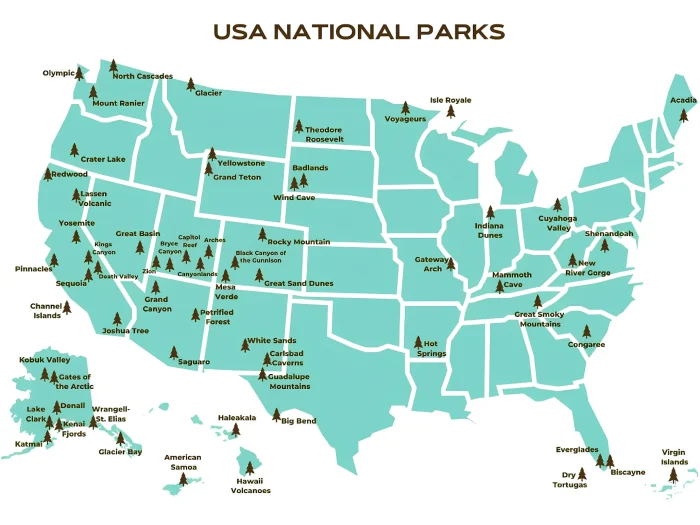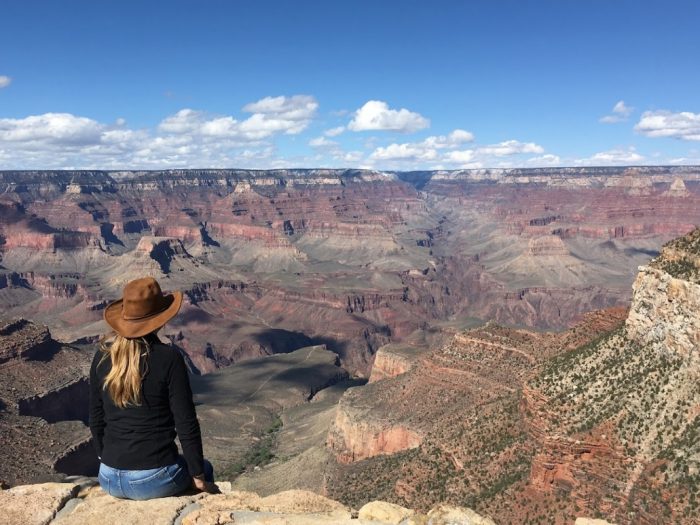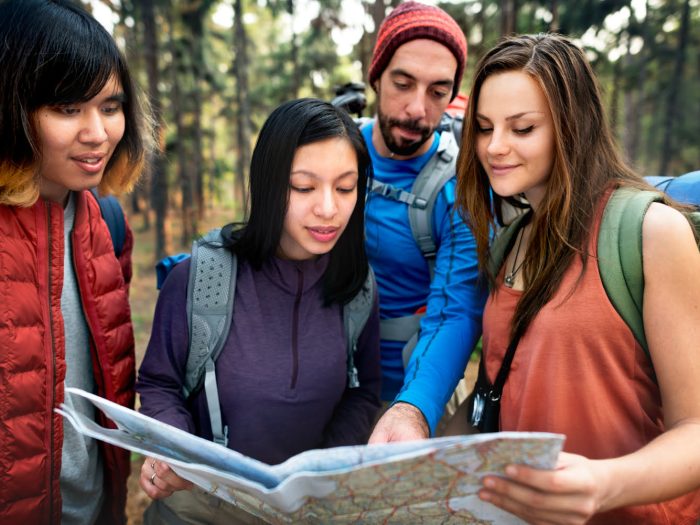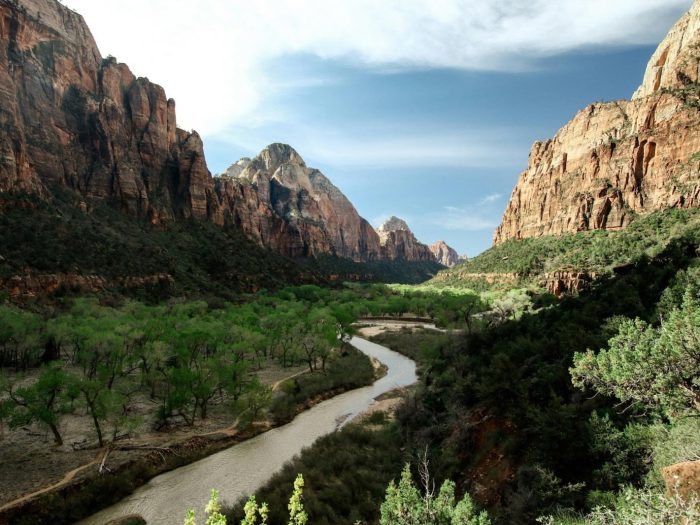Study of National Parks in the College Curriculum
National parks are among the most valuable natural and cultural sites. They play a key role in the conservation of biodiversity. They also promote understanding of the importance of ecosystems. The study of national reserves is an integral part of students’ development. It also contributes to the conservation of natural areas. Continuous support and development of such programs are important for training future leaders. Those who can understand and solve problems related to environmental protection. This article will discuss the importance of integrating the study of nature reserves into higher education. Also, the prospects that this opens for students.
I. Importance of National Parks in Education
National parks play a key role in preserving the diversity of natural resources. They are not only beautiful landscapes and protected areas. They are a living classroom for cultural and environmental learning. A classroom that invites us to study the importance of environmental conservation. In modern educational practice. Students can write more than one major essay on this topic.
The choice of a “national parks” theme can be an academic goal and also has pragmatic advantages. The latter includes working with professional writers. Those who will help students write the best quality paper. After all, who better than an essay writer to highlight how the study of national parks in education curricula will influence further development. The development of our society and enhance environmental awareness. In this context, the essay becomes a kind of space to highlight the importance of national areas as objects of study. If you worry about how to write an essay on this, online help from professional writers may be your best assistance. They allow you to focus on the important aspects of this topic that have never been more crucial for our time.
By emphasizing the history and cultural aspects of national parks, students can gain a deeper understanding. One of the relationships between nature and human beings. Also, their cultural development. This broadens the horizons of students’ cultural understanding.
Also, the study of nature reserves develops awareness. It’s about the importance of sustainable development. And finally, adaptation to climate change. Students can explore practical ways to reduce the impact of human activity on nature.
II. Current State of National Parks in College Curricula
In the US, various educational programs and courses specialize in the study of national parks. Thus, allowing students to gain a deeper understanding of these unique natural areas.
- The program Ecology and Management of Natural Reserves. College of Environmental Science and Forestry. Syracuse, New York. Students study the ecosystems of national parks. They develop practical skills in managing natural reserves.
- The course Geography and Geology of National Parks. University of Colorado, Boulder. It focuses on the geographical and geological aspects of national parks. The course reveals the unique geological processes that shape these areas.
- The Biology and Management of Protected Areas program. School of Engineering and Natural Resources. Virginia Tech. The program includes practical research in various national parks.
Case studies in the field of national reserves are becoming a key component of studies in higher education. Let us consider those key areas that can become the object of in-depth study.
- Ecological impact of national parks
Students can explore the environmental impact of parks on natural ecosystems and biodiversity. And analyze the impact of human activity on the restoration of the environment.
- Studying the impact of tourism
The study may include:
- An analysis of tourist flows,
- their impact on the environment,
- Opportunities for sustainable development of tourism infrastructure.
- Cooperation with local communities
Students can investigate the interaction of national parks with local communities. Studying the impact of the park on the:
- economy,
- culture,
- social development of residents.
III. Benefits of Studying National Parks in College
The development of environmental awareness is a key benefit of studying national parks. Students become agents of positive change in the field of ecology. Organizing excursions and conducting research in the field creates unique opportunities for students. The ones to take part in real scientific projects. The study of national parks creates the basis for further careers. In nature conservation, ecology, and tourism. For more information, see
- Conservationists work in national parks to ensure the conservation and restoration of ecosystems. They implement management strategies to conserve natural resources.
- Ecologists conduct field research to study the ecosystem:
- ecosystem dynamics,
- climate impacts,
- human activities in the natural environment.
- Tourism specialists develop and install balanced and sustainable tourism programs. Promote tourism development and raise awareness of the importance of natural heritage.
IV. Challenges and Considerations
Balance
Ensuring the harmonious development of students requires attention to balance. The one of theoretical and practical learning.
Funding and resources
Effective implementation of national park study programs requires adequate funding:
- for research,
- for field trips.
Ensuring access
It is crucial to make efforts to ensure the following. All students have equal access to national park study opportunities.
V. Incorporating National Parks into Different Disciplines
Incorporating the study of national parks into a variety of academic disciplines will prepare students for a comprehensive understanding of this issue.
- Ecology and Environmental Protection
Understanding the interaction between wildlife and human activity.
- History and Cultural Studies
Studying the history of national parks and their impact on culture allows students to realize the next one. The importance of cooperation between conservationists and cultural implications in park management.
- Recreation, Parks, and Tourism Studies
This includes the study of tourism development in national parks. Students study recreation and tourism strategies, balanced approaches to visiting and conservation.
- Geography and Earth Sciences
The study of geological formations, climatic features, etc.
VI. Case Studies: Successful Integration of National Parks into Curricula
There are many examples of high schools that integrate the study of national parks into their programs. Some of them are the before-described ones.
- Ecosystems and Protected Areas Management course at the University of Colorado, Boulder.
- The Ecology and Natural Reserves Management program at the College in Syracuse.
- The Biology and Natural Reserves Management program at Virginia Tech.
Studying national parks has a significant positive impact on students. It broadens their horizons and develops their research and analysis skills. The impact on the community is manifested in the improvement of environmental awareness.
The interaction of colleges with national organizations helps to create integrated programs. It also provides access to resources for students. Partnerships promote beneficial exchange of information and research.
VIІ. Future Directions
The future of national park studies may include more interdisciplinary approaches. Combining knowledge of ecology, history, cultural studies, and other fields. All this for a deeper understanding of the relationship between humans and nature.
It is also necessary to intensify cooperation between universities and national parks. This will ease the exchange of research and educational resources.
The inclusion of technology and virtual reality in the study of national parks will allow:
- for distance learning,
- and virtual excursions for students from around the world.
_________________________
Summarizing the above, we now see that the study of national parks in college curricula is an essential component of:
- Student development
- Conservation of natural reserves and their prosperity.
Continued support and development of special programs are critical to training future leaders. Leaders who can see problems and solve them. Problems related to environmental protection and sustainable development.
Thus, educators, policymakers, and students should advocate the following. The inclusion of national parks in college curricula. It will be a key component of education for a sustainable and successful future.
For them and future generations.
Cory Shilling
Author of essays and research papers on sustainability, ecology, and environmental issues. She runs a blog about raising environmental awareness. Researcher on the historical and cultural significance of national parks.
https://www.freepik.com/free-photo/young-couple-with-map-forest_12650778.htm

https://www.freepik.com/free-photo/tourists-men-women-look-map-near-flower-gardens_9295033.htm
https://www.freepik.com/free-photo/man-gives-high-five-woman-forest_9215722.htm
https://www.gettyimages.com/detail/photo/child-drawing-a-leaf-royalty-free-image/79337385
https://www.gettyimages.com/detail/photo/the-grand-canyon-royalty-free-image/174472183




